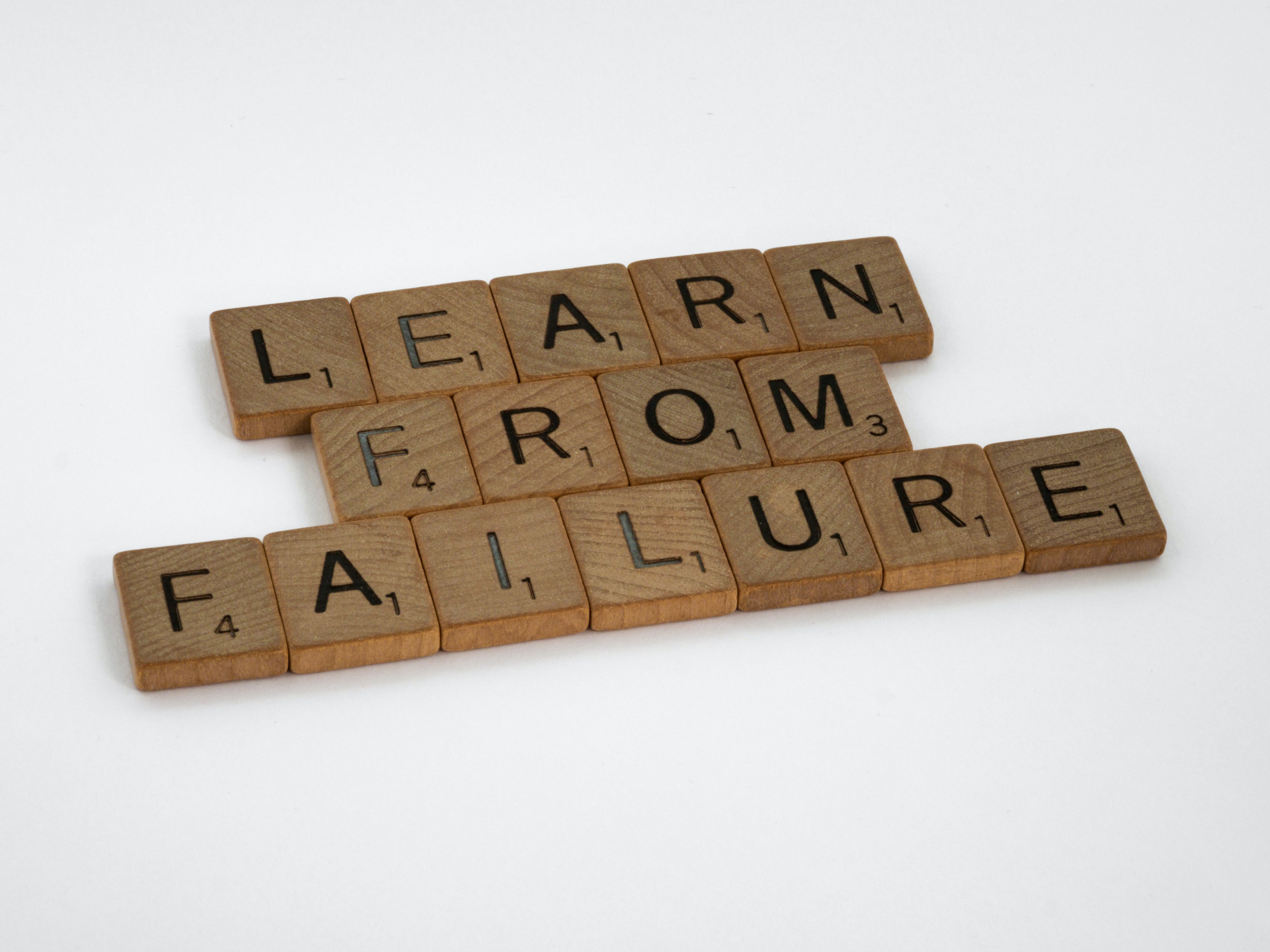
What Happens If You Fail an AP Exam?
You might be worried if you fail an AP exam (where failing is receiving a score less than 3), but don’t worry! Passing an AP exam has many benefits: you may receive college credit, it may help you win an AP Scholars award, and it may add to a larger picture of your academic success that can help you get into colleges. Failing an AP exam won’t grant you these advantages, but doesn’t carry any additional weight beyond that. You can certainly still get into colleges, however, you may need to take additional courses once you attend university than you would have with a passing AP score. It’s also worth noting that a failing AP score is evidence that you likely have not grasped the course material, and is an opportunity for you to rethink your study habits.

You might be worried if you fail an AP exam (where failing is receiving a score less than 3), but don’t worry! Passing an AP exam has many benefits: you may receive college credit, it may help you win an AP Scholars award, and it may add to a larger picture of your academic success that can help you get into colleges. Failing an AP exam won’t grant you these advantages, but doesn’t carry any additional weight beyond that. You can certainly still get into colleges, however, you may need to take additional courses once you attend university than you would have with a passing AP score. It’s also worth noting that a failing AP score is evidence that you likely have not grasped the course material, and is an opportunity for you to rethink your study habits.

Does it Look Bad If You Fail an AP Exam?
First of all, it’s important to know that if you fail an AP exam, you are not obligated to report that score to the universities you’re applying to. This reflects the fact that, in general, your grades will have a bigger impact on admissions than your AP scores. It may be a red flag to universities if you consistently have much higher grades in your AP classes than AP scores and/or have consistently low AP scores in areas relevant to your intended major, but one or two poor (or omitted) AP scores won’t make much of a difference. That being said, if you do pass, you should definitely report your score, since the colleges may presume a lower score than you actually received if you do not report.

Do Colleges Look at Failed AP Tests?
Colleges do not see your AP scores unless you report them. So no, colleges do not look at failed AP tests.
What Happens if You Get a 1 on an AP Exam?
Nothing! But if you receive a very low score on an AP Exam (like a 1), it is probably better that you do not submit that score to colleges.
Does Failing an AP Exam Affect GPA?
Your grades in your AP courses can contribute to your weighted GPA, in which AP and honors classes are graded on a 5 point scale rather than the traditional 4 point scale. Thus, taking AP classes can improve your weighted GPA by up to 1 point, and can potentially raise your weighted GPA above a 4.0. This is because colleges recognize that AP classes are more challenging and require more work than a traditional course. The weighted GPA therefore rewards students who challenge themselves by taking advanced courses. However, your AP exam score does not impact your grade for the class, and therefore does not affect your GPA.
Can a Bad AP Score Hurt You?
On the whole, a bad AP probably won’t hurt you in and of itself, but it can be related to other concerns. A bad AP score is often correlated with a poor grade in the corresponding course, which can hurt your GPA. While AP courses benefit you by improving your weighted GPA, it may not be worth it if your overall grade in the course is very poor. Additionally, AP courses aren’t cheap, so it may feel like a waste to pay to take the test and not earn college credit by not passing the test. On the other hand, as previously mentioned, AP scores are generally not a big part of colleges’ admissions decisions. So, while having a lot of failing AP scores might raise some concern, a single failing AP score is unlikely to affect your college acceptances.
What Happens If You Fail an AP Exam but Pass the Class?
Your grades are generally more important for college admissions than AP scores, so you’re not in a bad position if you fail the exam but do well in the class. That being said, your grade in the class won’t earn you college credit the way that a passing AP exam will, so you will likely have to retake the corresponding introductory class in college. On the other hand, if you fail the class but pass the exam, the outcome depends a bit on your school’s grade policy. Some schools might allow failed grades to be changed on a transcript with a passing AP score, but these policies vary from school to school. However, a passing AP exam will allow you to earn college credit regardless of what your grade in the class is.
Can You Retake AP Exams?
AP Exams are given only once a year in May, so you would have to wait until the next year to retake an AP. You can not take an AP Exam twice in one year, but you can take one every year it is offered.
What Are the Most Failed AP Exams?
All AP exams have a passing rate of at least 50%. The most failed AP exams are Physics 1 (failed by 48.4% of all students), Environmental Science (failed by 46.6% of all students), and Chemistry (failed by 43.9% of all students). For a full chart of the hardest AP exams (those with the lowest passing rate), check out this site. However, please note that a test’s pass rate is not a perfect indicator of how difficult the corresponding class or AP exam is. Many factors impact the pass/fail rates of an AP exam, including how many students take it, which kinds of students tend to take it, etc.
So You Failed an AP Exam. What’s Next?
The main thing to know if you fail an AP exam is that you won’t receive college credit in that subject. This may affect the kinds of courses you take in your first year of university as well as how long it takes you to complete college. Additionally, a failed AP exam will not help you towards winning AP Scholars awards. The College Board awards a variety of honors to students who pass AP exams, and the type of award you can receive depends on how many AP exams you pass. Therefore, if you fail an AP exam, this might prevent you from winning certain AP Scholars awards. These awards are good to put on college and scholarship applications, though they aren’t usually the biggest deciding factors, so a failed AP exam may present a (likely small) obstacle towards getting into certain colleges or scholarship programs.
5 Tips on How Not to Fail an AP Exam
- Take a class in the subject matter. Sometimes students try taking AP exams without having taken a course in that subject, but it’s much harder to pass this way. AP courses offered by high schools cover the material on the exams, so it’s a great way to prepare all year long.
- Do practice problems! College Board provides example questions from past tests, and you can also buy prep books that have practice tests that are formulated to be similar to the real thing. If you take an AP class in school, your teacher will also be able to provide you with practice questions.
- Be familiar with the format of the test. Similar to other standardized tests, it’s helpful to know what to expect before the test date. You should know questions like: How long is the test? How many questions are multiple choice or free response? Can you get partial credit, and if so, how? What are you allowed to bring with you to the testing site?
- Study with other students. The material on AP exams is designed to be challenging. Studying together is a good way to learn from your peers, talk through your thinking, and make studying more fun.
- Get a tutor! Ivy Tutors Network has AP tutors with years of experience helping students master AP course material. We’d be happy to help you achieve your goals, work through tricky concepts, and earn college credit!




